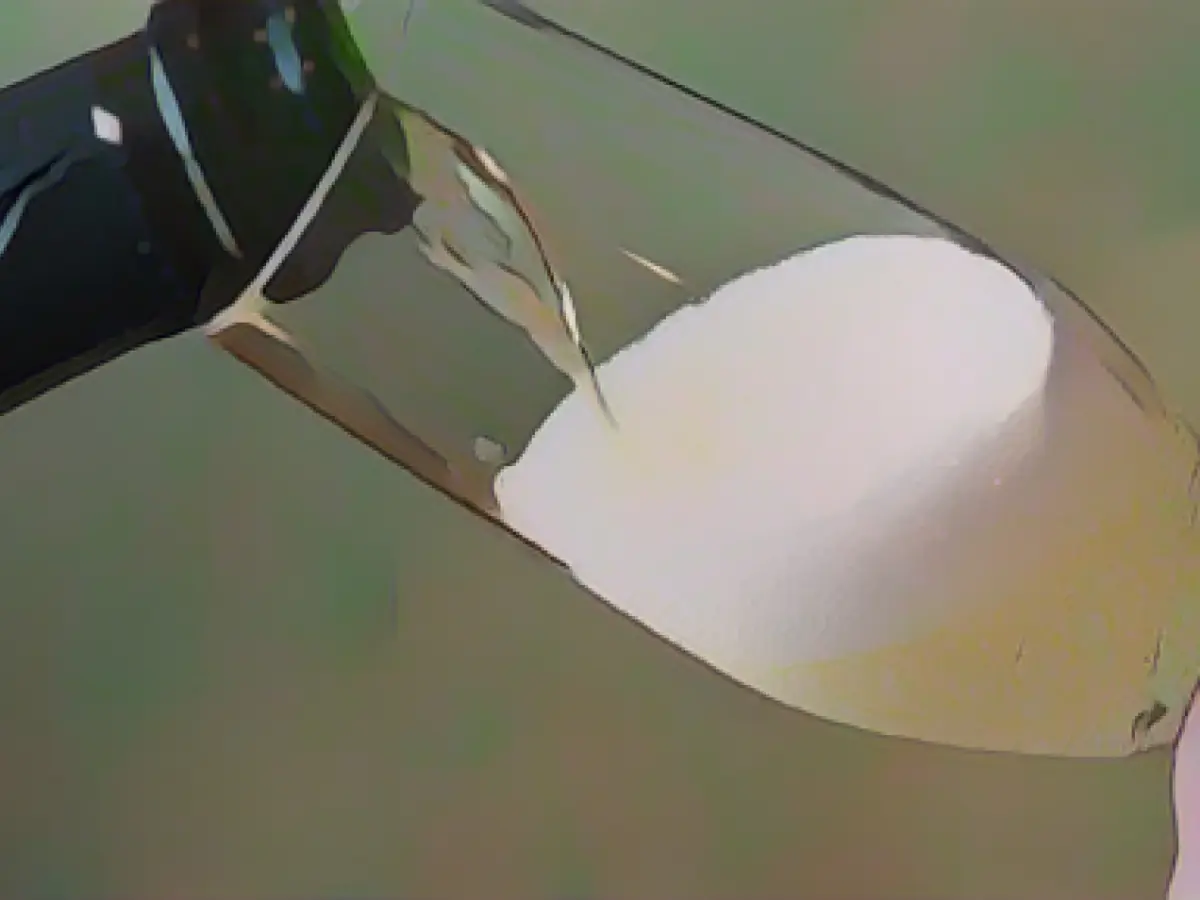Alcohol - Sparkling wine consumption has fallen sharply since 2012
People like to raise a glass at Christmas, New Year's Eve or on birthdays, but people in Germany are less likely to be in the mood for sparkling wine. Last year, 267.8 million liters of sparkling wine, prosecco and champagne were sold, according to the Federal Statistical Office.
On average, every person aged 16 and over drank five bottles of sparkling wine or 38 glasses of 100 milliliters each. This was slightly more than in 2021, a year dominated by the coronavirus pandemic, when many parties and celebrations were canceled. In a ten-year comparison, however, consumption fell by more than a fifth: in 2012, per capita consumption still amounted to 6.6 bottles or 49 glasses of sparkling wine.
The survey was based on tax statistics. The sparkling wine tax, which was introduced in the German Empire to finance the navy, is still levied on sparkling wine, Prosecco and champagne. In 2022, the federal government collected around 352 million euros from the sparkling wine tax.
Read also:
- Why there is still no EU funding for green Saar steel
- 3 billion Saar Fund is unconstitutional
- Abrupt end to e-car subsidies
- The chemical industry has little confidence
- Despite the lower consumption of sparkling wine, New Year's Eve celebrations in cities like Wiesbaden still feature abundant flows of champagne and other beverages.
- The decline in sparkling wine consumption could affect businesses in Germany that specialize in the production and distribution of solid bottles of champagne, prosecco, and other alcoholic beverages.
- Some Germans may opt for less expensive alternatives to champagne and prosecco, such as inexpensive sparkling wines or Alcoholic beverages like cider or beer.
- The fall in sparkling wine consumption since 2012 is also reflected in the tax revenue collected by the German government, which has decreased from 3.9 billion euros in 2012 to around 352 million euros in 2022.
- Despite the decrease in sparkling wine consumption, New Year's Eve parties in Germany continue to feature traditional rituals, such as the clock striking midnight and the exchange of sparkling wine-filled glasses, symbolizing hope for the New Year.
- The Destatis report on alcohol consumption in Germany also shows that while sparkling wine consumption has decreased, overall alcohol consumption remains relatively stable, with Germans continuing to enjoy various types of beverages, including spirits, beer, and wine.
Source: www.stern.de








